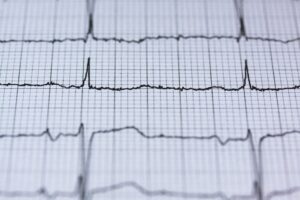


Study finds key brain region smaller in birth control pill users
![]() Upper- advanced
Upper- advanced
2020/08/04 20:00
1.hypothalamus (n)
a small part in the brain that controls things such as body temperature and the release of hormones
2. endometriosis (n)
a condition in which cells from the lining of the uterus grow outside the uterus
3. recruited (v)
to find new people to take part in an activity or event, or to help you in some way
4. impact (n)
the force or action of one object hitting another
5. pituitary gland (n)
a small organ at the base of the brain that controls the growth and activity of the body by producing hormones
6. hormones ( n)
any of various chemicals made by living cells that influence the development, growth, sex, etc. of an animal and are carried around the body in the blood
Study finds key brain region smaller in birth control pill users

Researchers studying the brain found that women taking oral contraceptives, commonly known as birth control pills, had significantly smaller hypothalamus volume, compared to women not taking the pill, according to a new study presented today at the annual meeting of the Radiological Society of North America (RSNA).
Located at the base of the brain above the pituitary gland, the hypothalamus produces hormones and helps regulate essential bodily functions including body temperature, mood, appetite, sex drive, sleep cycles and heart rate.
Oral contraceptives are among the most popular forms of birth control and are also used to treat a host of conditions, including irregular menstruation, cramps, acne, endometriosis and polycystic ovary syndrome. According to a 2018 report from the Centers for Disease Control and Prevention’s National Center for Health Statistics, from 2015 to 2017 approximately 47 million women aged 15-49 in the U.S. reported current use of contraceptives. Of those, 12.6% used the pill.
In his study, Dr. Lipton and colleagues recruited a group of 50 healthy women, including 21 women who were taking oral contraceptives. All 50 women underwent brain MRI, and a validated approach was used to measure hypothalamic volume.
“We found a dramatic difference in the size of the brain structures between women who were taking oral contraceptives and those who were not,” Dr. Lipton said. “This initial study shows a strong association and should motivate further investigation into the effects of oral contraceptives on brain structure and their potential impact on brain function.”
Resource: https://www.sciencedaily.com/releases/2019/12/191204090819.htm

- What do you think of birth control?
- What did you think when you read the headline?
- What do you think are the disadvantages and advantages of pills?
“Contraceptives should be used on every conceivable occasion.”










